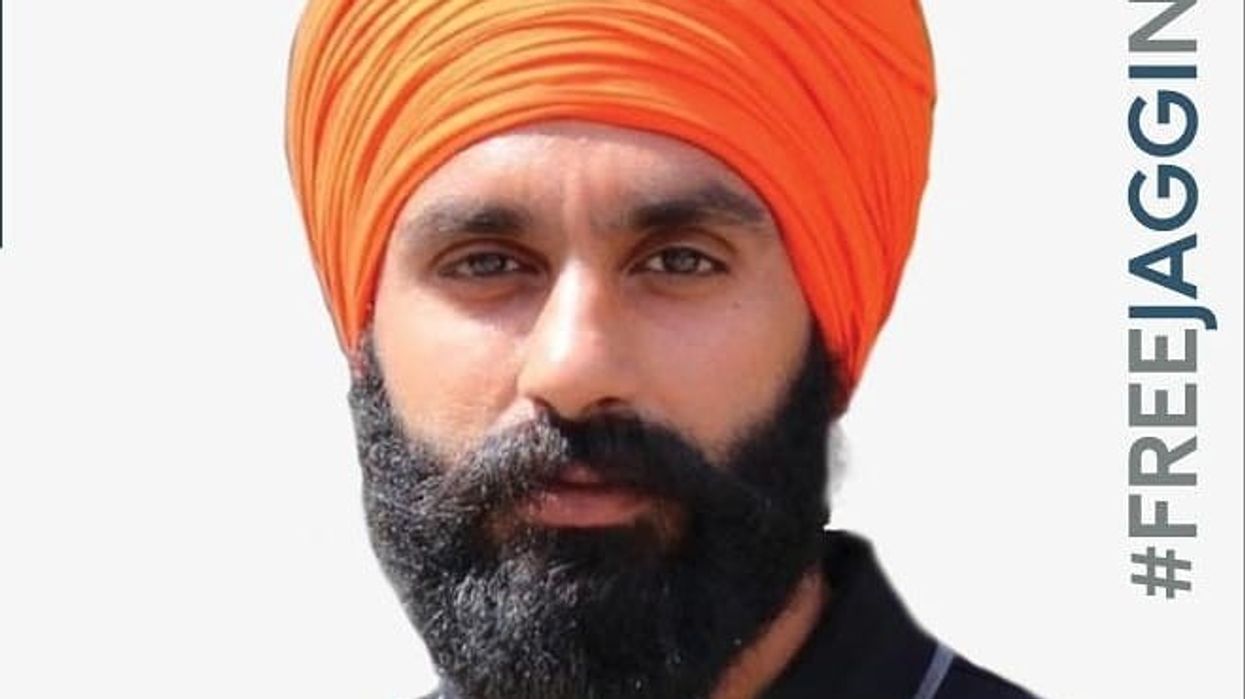A rights group has accused the UK’s intelligence agencies of sharing information with Indian authorities about a Sikh campaigner before his “unlawful arrest”.
Jagtar Singh Johal, from Dumbarton in Scotland, was detained in the north Indian state of Punjab while he was shopping with his wife in November 2017.
In May this year, he was charged with conspiracy to commit murder and being a member of a terrorist network - linked to Sikh nationalism - for which he could face the death penalty under Indian laws.
Johal, who is currently lodged in a Delhi jail, has denied any wrongdoing.
His lawyers said he was subjected to electric shocks and other forms of torture, an allegation India has rejected.
They lodged a complaint in the high court against the UK’s Foreign Office, the Home Office and the attorney general, alleging that sharing of information took place despite him facing a risk of torture in the south Asian country.
Reprieve, a group dedicated to revealing the truth about human rights abuses, claimed it has uncovered documents that suggested MI5 and MI6 tipped off the Indian authorities about Johal.
“Our investigators have uncovered critical information that in 2017 the UK Government may have authorised MI5 and MI6 to share information about UK citizen, Jagtar Singh Johal, that led to his unlawful arrest and torture in India,” it said in a petition.
According to it, no one should ever be tortured, especially not with the assistance of the UK government.
The group also reminded foreign secretary, and potential future Prime Minister Liz Truss, of her duty to rectify the wrongs of her predecessors and bring Johal back home and reunite him with his family.
It also urged the government to ban intelligence sharing where there was a real risk of torture or the death penalty.
“Our Government should protect us, not expose us to torture and the death penalty”, the rights group said.
Preet Kaur Gill, the MP for Birmingham Edgbaston, suspected that the transfer of information to India could have taken place under the nose of prime minister Boris Johnson when he was the foreign secretary.
“The revelation that it was information passed from Britain to India that led to Johal’s arrest is concerning. Boris Johnson was the foreign secretary at the time. The sign-off on the transfer of such information could only have been given by him”, the shadow cabinet minister for international development tweeted on Tuesday.
Johnson had said earlier this year that the detention of Johal was arbitrary and that the UK had raised concerns about his treatment and right to a fair trial.




